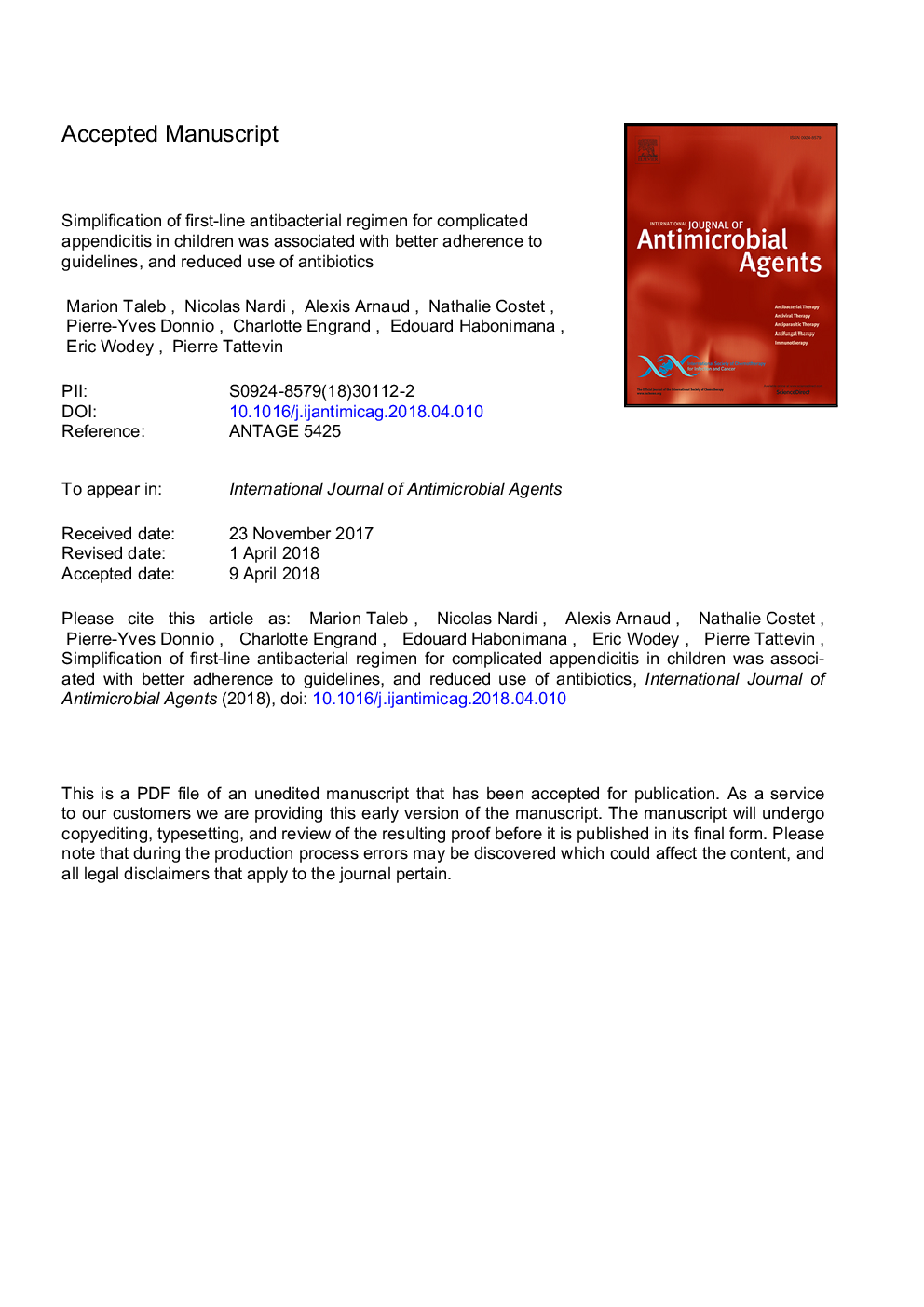| Article ID | Journal | Published Year | Pages | File Type |
|---|---|---|---|---|
| 8738449 | International Journal of Antimicrobial Agents | 2018 | 14 Pages |
Abstract
Acute appendicitis in children requires early surgery and short-course antibiotics active against Enterobacteriaceae and anaerobes. Although an aminoglycoside-containing three-drug regimen has been used successfully for decades, simpler regimens with similar efficacy are increasingly used. This study evaluated the impact of a switch from the combination of cefotaxime, metronidazole and gentamicin (regimen 1) to piperacillin/tazobactam (regimen 2) as first-line regimen for complicated acute appendicitis in children. In total, 171 children were enrolled [median (IQR) age, 10 (6-13) years], treated with regimen 1 (nâ¯=â¯80) or regimen 2 (nâ¯=â¯91) following surgery for complicated acute appendicitis. The two groups were comparable except for surgical approach (through laparoscopy in 46% vs. 88% for regimens 1 and 2, respectively; P < 0.001). Post-operative complications and duration of hospital stay were similar. Deviations from antibacterial treatment protocol decreased from 36% (29/80) to 14% (13/91) (P < 0.001), with a dramatic reduction in antibacterial treatment duration from median (IQR) of 15 (12-16) days to 5 (5-8) days (P < 0.001). Post-operative intra-abdominal abscess developed in 32 children (18.7%). Female sex (ORâ¯=â¯2.76, 95% CI 1.18-6.48; Pâ¯=â¯0.02) and sepsis/septic shock on admission (ORâ¯=â¯4.72, 95% CI 1.12-19.97; Pâ¯=â¯0.035) were independently associated with post-operative intra-abdominal abscess, but not antibacterial regimen. This study shows that simplification of first-line antibacterial regimen for complicated appendicitis in children was associated with reduced protocol deviation, reduced duration of antibiotics, and similar outcomes (post-operative complications and duration of hospital stay).
Keywords
Related Topics
Life Sciences
Immunology and Microbiology
Applied Microbiology and Biotechnology
Authors
Marion Taleb, Nicolas Nardi, Alexis Arnaud, Nathalie Costet, Pierre-Yves Donnio, Charlotte Engrand, Edouard Habonimana, Eric Wodey, Pierre Tattevin,
